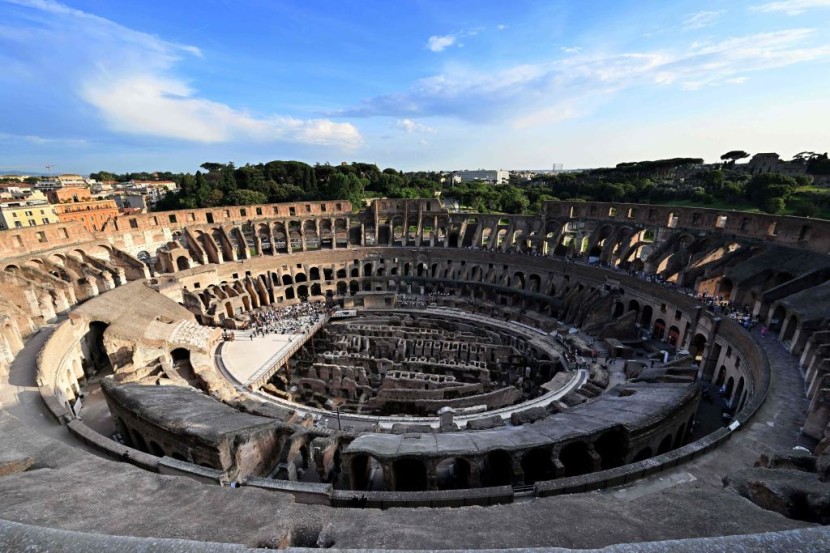
Italy's culture and tourism authorities are on the hunt to find and punish a male tourist who was filmed carving his name and that of his apparent partner in the wall of the nearly 2,000-year-old Colosseum in Rome.
The name of the alleged man and his partner were "Ivan" and "Haley," as per the graffiti.
Video of the incident went viral on social media at a time when Romans had already been complaining about the influx of tourists to the Eternal City in record numbers for the summer season.
Italian tourism lobby group Federturismo cited ISTAT's 2023 data, saying this year is shaping up as a record for visitors in Italy, even surpassing pre-pandemic levels that hit a high in 2019.
Fellow Tourists Outraged
On social media, many commented how they saw the graffiti being carved firsthand and expressed their outrage on "Ivan."
"I was there and saw that too," one comment read. "The guy didn't even think he was doing something wrong."
"Rome (indeed most Italian cities I visited) are awash with graffiti," another comment added. "But it seems the graffiti people leave the historical stuff alone."
Society, during the height of the Roman Empire, has been characterized by vandalism after discovering period graffiti within archaeological sites. The graffiti in the Colosseum dates back to Roman times after drawings made by gladiators were uncovered during restoration work in 2013. There were also carvings of names drawn by visitors in the 1940s.
However, the Italian government prohibited further vandalizing ancient Roman sites within Rome and elsewhere in the country.
Punishing Modern Vandals
Italian Culture Minister Gennaro Sangiuliano called the graffiti "serious, undignified and a sign of great incivility" and hoped for his arrest.
Meanwhile, Italian Tourism Minister Daniela Santanche added she hoped the tourist would be sanctioned in order for him to understand the gravity of the gesture. "We cannot allow those who visit our nation to feel free to behave in this way," she added.
Previous cases of modern tourists vandalizing the Colosseum have resulted in fines of up to $20,000 or more.
A Russian tourist was fined EUR20,000 ($25,000) in 2014 for engraving a big letter "K" on the Colosseum's wall. He was also given a summary judgment and a suspended four-year jail time.
In 2015, two American tourists were also cited for aggravated damage after carving their names on the Roman-era site.
In 2020, an Irish tourist was also reported to police for allegedly carving his initials into the building.
While the Colosseum and other Roman-era structures have been heavily vandalized with graffiti during the time they were used, archaeologists hoped high fines would discourage visitors from further defacing the structures.
Rossella Rea, the director of the Colosseum, said the large fines for graffiti carving were justified for damaging the structure. "You cannot write on a historic wall, it's absolutely forbidden," she said.
© 2025 HNGN, All rights reserved. Do not reproduce without permission.








